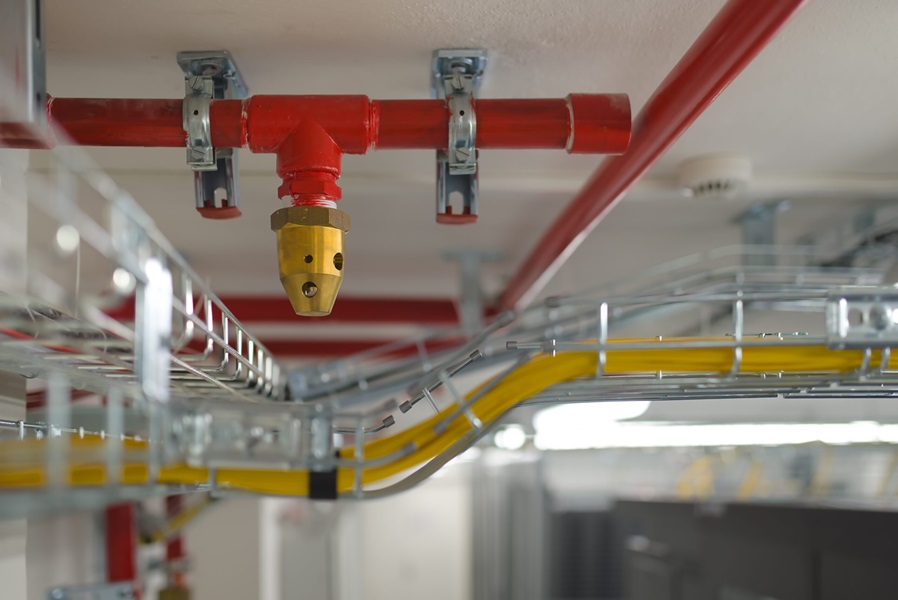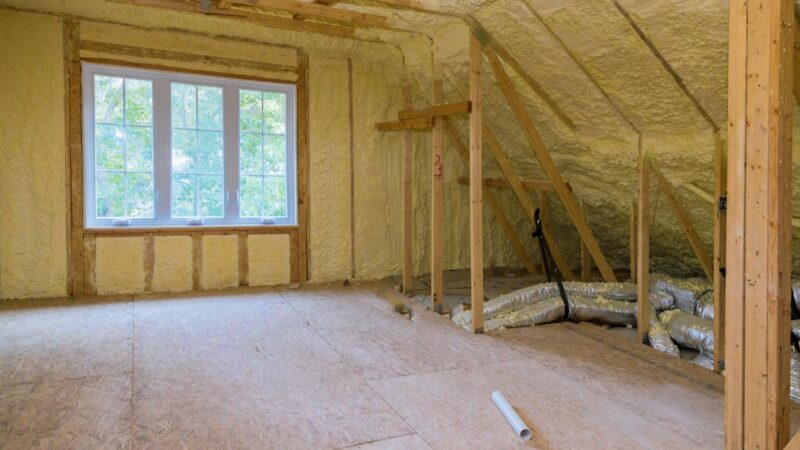Benefits of Clean Agent Fire Suppression

When fire safety is non-negotiable—but so is protecting sensitive equipment—clean agent fire suppression becomes a no-brainer. From data centres to museums and hospitals, this advanced fire protection method is winning over professionals who need fast, efficient, and non-damaging solutions.
Most people associate fire suppression with sprinklers and foam. But here’s the thing: while they may put out flames, they often leave behind a trail of destruction. That’s where clean agents come in—offering powerful fire protection without the mess.
One of the most effective solutions on the market today is the clean agent suppression system. It provides instant protection, minimal interruption, and no residue—making it a reliable investment for any asset-heavy environment.
Let’s dive into why this system is so beneficial.
What Is a Clean Agent Fire Suppression System?
A clean agent fire suppression system uses gas-based agents to extinguish fires. These agents work by either removing heat or reducing oxygen levels just enough to stop the fire—without harming people or equipment.
These systems are perfect for areas where water or foam could cause serious damage, like server rooms, control centres, or archive storage.
How It Works: Quick and Effective
Clean agent systems are designed for speed. Once a fire is detected, the system activates and discharges the gas—usually within 10 seconds. The agent spreads quickly, extinguishing the fire before it can grow and cause serious damage.
Unlike traditional systems, there’s no wait time for clean-up, and no risk of destroying what you’re trying to protect in the process.
1. No Water, No Damage
One of the most obvious benefits is the complete lack of water. Sprinklers might save the structure, but they’ll wreck electronics, documents, and equipment.
Clean agents eliminate fire and prevent collateral damage. That’s especially useful in environments like:
- IT server rooms
- Medical imaging suites
- Museums and galleries
- Archives and libraries
2. Zero Residue Left Behind
Powder and foam-based systems leave behind a mess. That means downtime for cleanup, extra repair costs, and possibly even replacing delicate equipment.
Clean agents evaporate almost instantly after use—leaving no trace. No mess, no moisture, just a fire-free environment ready to use again.
3. Safe for People
Many modern clean agents, like Novec 1230 and FM-200, are safe to discharge in occupied spaces. That means if there’s a fire in a control room or a medical lab, you don’t have to evacuate the building before the system activates.
This is a massive advantage for businesses that operate around the clock or can’t afford interruptions.
4. Fast Fire Suppression Saves More Than Assets
Every second counts during a fire. Clean agent systems are engineered for rapid response—many suppress fires in less than 10 seconds after detection.
Stopping a fire early reduces:
- Structural damage
- Downtime
- Risk to life
- Insurance claims
It’s a proactive approach to fire safety that genuinely limits the fallout.
5. Compatible With Sensitive Electronics
Electronics and moisture don’t mix. Clean agents are non-conductive, so they’re safe around live electrical components. They also won’t corrode your devices.
If your operations rely on servers, medical machines, or security systems, this is the safest way to go.
6. Minimal Downtime
Traditional fire suppression systems often require a full site shutdown for cleanup and recovery. Clean agents let you skip all that.
Because they leave no residue and require no cleanup, your business can be up and running shortly after the incident. That makes them ideal for mission-critical operations.
7. Eco-Friendly Options Available
Today’s clean agents aren’t just safe for your space—they’re also better for the planet. Options like Novec 1230 offer:
- Zero ozone depletion potential
- Low global warming potential
- Short atmospheric lifetime
If your company has environmental targets, this is a great way to align fire safety with sustainability.
8. Precision Targeting
Clean agent systems don’t flood the whole building. They’re engineered to cover specific zones, which makes them more efficient and cost-effective.
This precision also reduces waste and avoids unnecessary system discharges.
9. Cost-Effective Long-Term
Sure, the initial cost of a clean agent system may be higher than a traditional sprinkler setup. But the real question is: how much would it cost if your business went offline for a week?
With minimal damage, low maintenance, and fast reactivation, the long-term ROI speaks for itself.
10. Trusted in High-Stakes Environments
From defence operations to financial data centres, clean agent suppression systems are the standard for high-value environments. Why? Because they offer unbeatable protection without compromise.
If your industry can’t afford mistakes, clean agents are the way forward.
Where Clean Agents Are Most Commonly Used
You’ll typically find clean agent systems in environments that house sensitive or high-value assets. Here are a few examples:
- Server rooms – Protects data from both fire and water damage
- Telecom facilities – Maintains uninterrupted communications
- Healthcare – Safeguards equipment without harming patients
- Museums and libraries – Preserves irreplaceable archives and art
- Banks and financial institutions – Secures mission-critical systems
In all these cases, businesses choose clean agents because they offer peace of mind and performance.
Maintenance Is Simple but Important
Like any fire suppression system, clean agent systems need regular inspections. But the good news is they’re relatively low-maintenance.
Routine checks involve:
- Inspecting agent levels
- Testing detection systems
- Verifying discharge nozzles are clear
- Ensuring control panels are functioning
Stay on top of it, and your system will be ready to respond in a flash.
Making the Right Investment for Your Business
A fire can strike anytime. What matters is how prepared you are to respond.
Clean agent suppression systems offer speed, safety, and security without the drawbacks of traditional methods. If you’re serious about protecting your assets—and want a fire safety solution that won’t cause more harm than the fire itself—this is the way to go.




